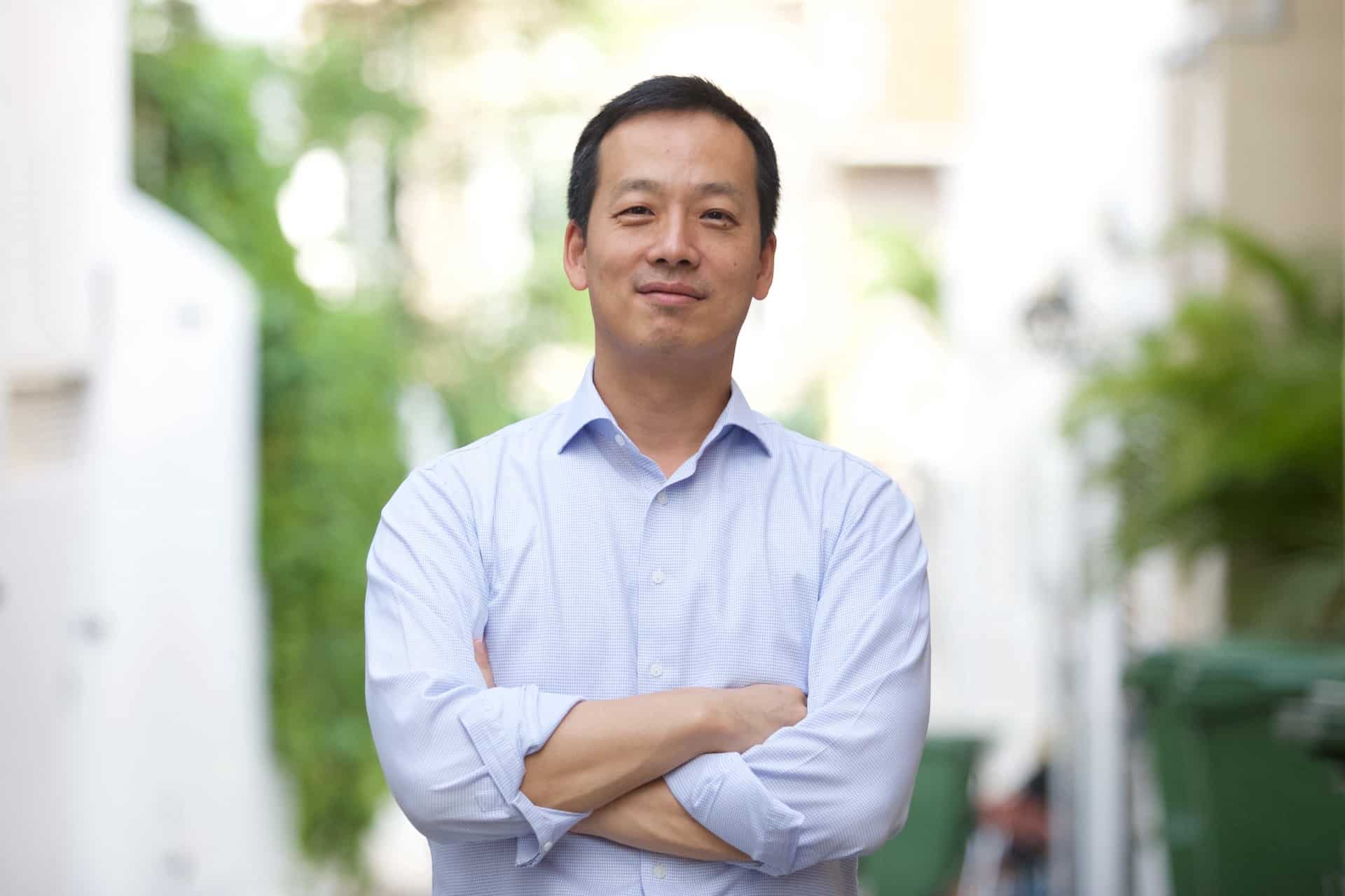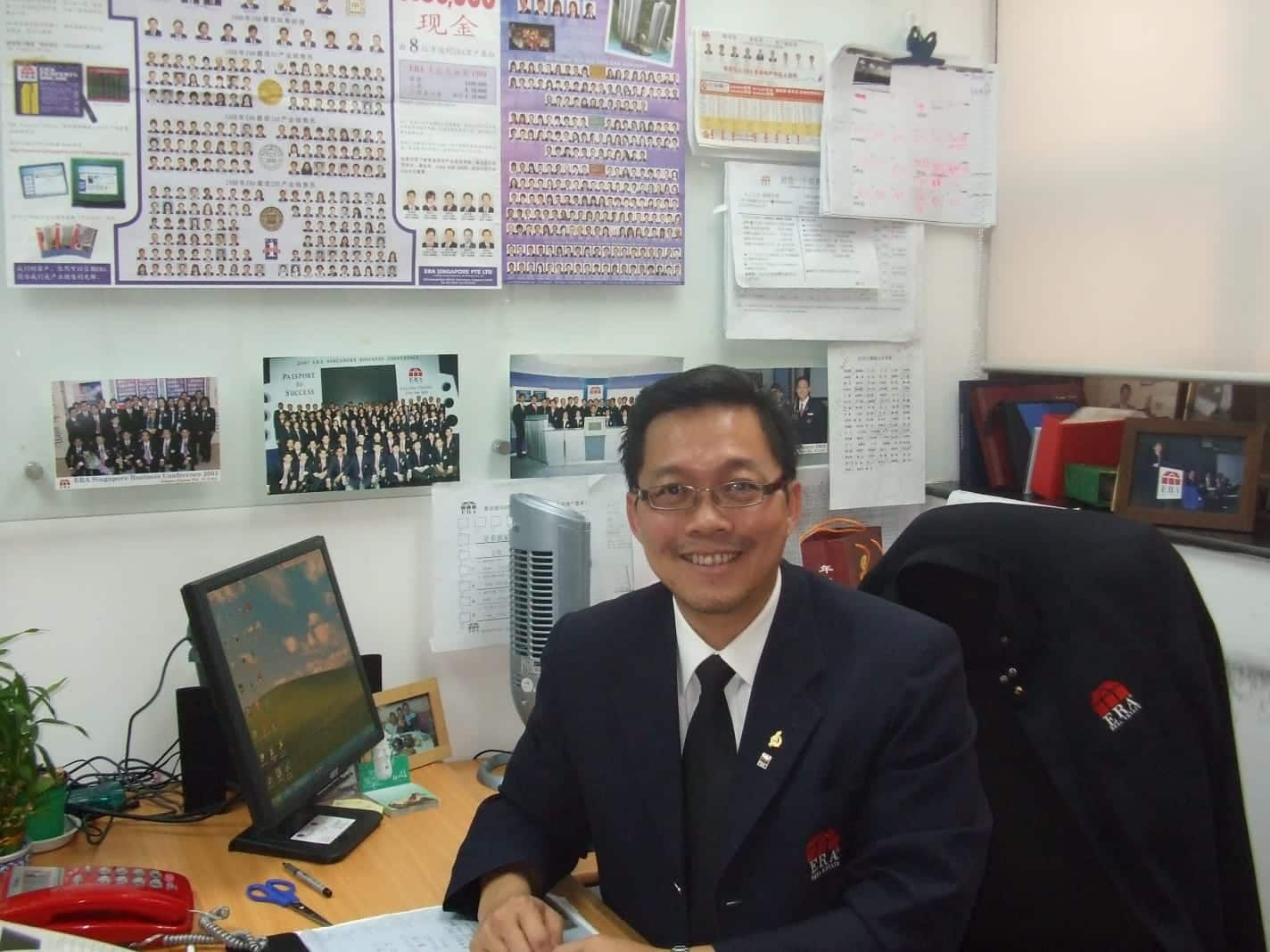“You go first”: Would you give up a coveted job promotion for the sake of another? Endowus founder Samuel Rhee did
Faith Driven Entrepreneur Asia // April 3, 2023, 5:02 pm

"When I truly died to myself, it led to a place of repentance," says Samuel Rhee, founder of Endowus. Photo via Endowus.
Imagine you’re waiting on a big promotion that you’ve worked for all your life, and then God tells you to recommend someone else for it.
That’s what happened to Endowus founder Samuel Rhee, formerly the CEO and Chief Investment Officer at Morgan Stanley Investment Management.
On the podcast series by Faith Driven Entrepreneur Asia, he recounted one key incident which he calls not only a moment of “great shame” but also one that has since shaped his priorities.
Here is an extract of the podcast interview:
A unique vision
The way I found purpose in the work that I did was the understanding that God placed me here to help that guy who, for his whole life was climbing electric posts and fixing the wires. I’m helping him to send his kid to college, or I’m helping teachers who have dedicated their lives to educating kids to be able to have dignity in their old age and not live in poverty.
So there was a great impetus for me to do my work well because of that perspective that God gave me, even when I was at a big bank.
“What the world needs is not more pastors, but more lay leaders who are able to do everything a pastor does.”
To provide you with a bit of context. My father was a pastor. He and my mother met Christ personally in their college days and devoted themselves as lay leaders within a campus evangelisation network that was something like Cru or InterVarsity Fellowship.
Living in poverty, they gave their lives to raise leaders of the future for God and His kingdom. And that runs deep in the values that shaped me a lot.
When I was a teen – I can’t remember exactly when – I talked to my dad and seriously asked him whether I should go into full-time ministry.
And he told me, yeah, he loves the ministry, but what the world needs is not more pastors, but more lay leaders who will be able to do everything a pastor does – teach the Bible, preach the Gospel, be missionaries – but in the workplace.
He saw the marketplace as the future spiritual battleground.
And this was in the 1980s; he was well ahead of his time.
His background and theology – that shaped me a lot. Micah 6:8 says “to do justice, and to love kindness, and to walk humbly with your God”. That’s been my guidepost.
A teenager wanting to be a good lay leader as his dream – that’s not very common but that’s how I grew up.
God speaks
When I was in Morgan Stanley, I was offered a promotion to be a Managing Director.
Being an MD at a big bank is like the Holy Grail of banking. At the time, I was a co-head with a friend. We were both offered a promotion and were led to believe that both of us would be promoted together.
But my boss flew in from New York to Singapore and told us that he managed to secure only one promotion for us. And instead of telling us who was going to get promoted, he sat us down and said: “Okay, you guys discuss and decide who’s going to get promoted first.”
“Hey, I prayed about it and I’m okay with you going first.”
We both obviously desperately wanted it. And I thought I deserved it more because I was managing a bigger piece of the portfolio in terms of assets. I had a slightly better performance and contributed more to the team.
But God intervened and said: “Hey, this is where being a Christian needs to be different.”
And He convicted my heart with a passage from Genesis 11 where Abraham obviously had first dibs on the land, but he gave the right of choice to his nephew, Lot, who chose the better field. And that was a testament of what being a Christian is about and where our priorities lie.
So I went back to my friend and told him: “Hey, I prayed about it and I’m okay with you going first.”
To be honest, I expected him to say: “No, no, Sam, you should go first.”
And I would push it back to him and say: “No, no, you go first.” And only then would he take it – it’s a very Asian thing, right?
Instead, he immediately jumped on it and said: “Is that okay? Really? I really want this. So, yes, thank you, Sam.”
I was devastated.
“You have your God. I don’t”
But God did so much more to me in that process. After that, I went to tell my boss and he agreed, saying: “I’ll try to do what I can for you next year.”
But these type of things are never guaranteed, right?
So I went to my friend and said: “Hey, I told the boss you’re going to be promoted first. And I’m okay with that.”
I expected him to be happy after that initial conversation. But basically, he was not looking that great.
“This is the first time in my life that someone is doing something that I know I cannot do.”
Instead he said this to me and it has stayed with me to this day: “Throughout my life, I thought I could do anything another person could do. And this is the first time in my life that someone is doing something that I know I cannot do.
“I was thinking about why, and I realised that it’s because you have your God. And I don’t.”
We’re great friends, but he’s not the type to say those things. When he said that, I realised something fundamentally true: Which is that until that moment I had always lived for my own glory, even though I would talk about the glory of God.
When I truly died to myself and gave something out, God used the mouth of my colleague and friend to encourage me. But it led to a place of repentance that this was the first time when I died to self that God was glorified in my life.
For me, that was the single experience that shaped my priorities. What is for God and His kingdom? What are the things that truly reflect His image through me in the workplace? And so, yeah, it was a moment of great shame and led me to a place of repentance.
God’s lesson, God’s way
The incident built further trust between my colleague and I and strengthened us as partners in the business. We were co-heads; we continued to lead the team together for many more years after that and had a fantastic relationship.
“This gave me a deep spiritual lesson that grounds me to this day and allows me to have that deep connection with God.”
And it’s a bit of an anti-climax, I say, because I did end up getting promoted the next year. And then I got promoted to be the CEO of the business in Asia. But it was great because that friend who I deferred the promotion to actually was one of the biggest supporters in me becoming the CEO.
Again, God taught me a lesson: It wasn’t about God wanting to take things away from me so that I could learn a lesson. That’s not how it works.
This was really to help me mature and grow, and give me a deep spiritual lesson that grounds me now to this day and allows me to have that deep connection with God through my own experience and to build on top of that.
So it really ended up being an “Abraham” life story of God giving me more than my heart’s desire and even things that I didn’t deserve. That is just the grace of God.
A fundamental concept that we often miss is the way of Jesus: He gave more than he took. That radical generosity is, even in Jesus’s time, what really set Him apart. And it’s something that we can definitely learn from Him in this day.
Catch the full interview of Samuel Rhee, Anthony Tan and other entrepreneurs on the Faith Driven Entrepreneur Asia podcast here.
FOR MORE STORIES LIKE THIS:
Former Morgan Stanley head honcho and Endowus founder on redeeming the world of finance
“Why can’t I be the businessman totally given to God?”: When Ronald Seet returned to the ‘world’
When a “4-year drought” taught award-winning PropertyLimBrothers to put people before commissions
We are an independent, non-profit organisation that relies on the generosity of our readers, such as yourself, to continue serving the kingdom. Every dollar donated goes directly back into our editorial coverage.
Would you consider partnering with us in our kingdom work by supporting us financially, either as a one-off donation, or a recurring pledge?
Support Salt&Light




